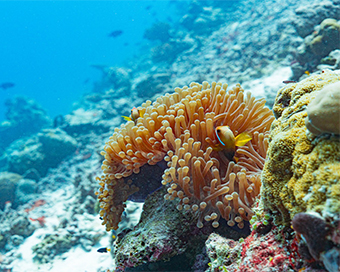Gallery
 PM Modi visit USA
PM Modi visit USA Only the mirror in my washroom and phone gallery see the crazy me : Sara Khan
Only the mirror in my washroom and phone gallery see the crazy me : Sara Khan Karnataka rain fury: Photos of flooded streets, uprooted trees
Karnataka rain fury: Photos of flooded streets, uprooted trees Cannes 2022: Deepika Padukone stuns at the French Riviera in Sabyasachi outfit
Cannes 2022: Deepika Padukone stuns at the French Riviera in Sabyasachi outfit Ranbir Kapoor And Alia Bhatt's Wedding Pics - Sealed With A Kiss
Ranbir Kapoor And Alia Bhatt's Wedding Pics - Sealed With A Kiss Oscars 2022: Every Academy Award Winner
Oscars 2022: Every Academy Award Winner Shane Warne (1969-2022): Australian cricket legend's life in pictures
Shane Warne (1969-2022): Australian cricket legend's life in pictures Photos: What Russia's invasion of Ukraine looks like on the ground
Photos: What Russia's invasion of Ukraine looks like on the ground Lata Mangeshkar (1929-2022): A pictorial tribute to the 'Nightingale of India'
Lata Mangeshkar (1929-2022): A pictorial tribute to the 'Nightingale of India' PM Modi unveils 216-feet tall Statue of Equality in Hyderabad (PHOTOS)
PM Modi unveils 216-feet tall Statue of Equality in Hyderabad (PHOTOS)The Badminton Association of India (BAI) has announced a 14-member-strong India squad for
- Men’s Sr Hockey Nationals to be played in division-based format from April 4
- Mensik denies Djokovic 100th title in Miami final
- KIPG: Son of a vegetable vendor, Bihar’s Jhandu Kumar eyes Worlds, 2028 Paralympics
- Hardik Singh credits hard work and team unity for receiving HI Midfielder of the Year award
- Djokovic, Alcaraz land in same half of Miami draw
Seaweed may help stop Covid virus from infecting human cells: Study Last Updated : 06 Dec 2021 03:49:05 AM IST 
A substance extracted from edible marine algae may help stop the spread of coronavirus, according to a study.
Researchers from Tel Aviv University (TAU) said ulvan, the major water-soluble polysaccharide extracted from the cell wall of green seaweed, could help stop coronavirus from infecting human cells, Jerusalem Post reported."The lack of access to vaccines takes the lives of many victims and even accelerates the creation of new variants," said TAU's Prof. Alexander Golberg."The study is still in its early stages, but we hope that the discovery will be used in the future to develop an accessible and effective drug, preventing infection with the coronavirus. Our findings at this stage arouse cautious optimism," he added in the study published in PeerJ -- a peer-reviewed science journal.Because other research showed that certain seaweed compounds had antiviral properties, the team decided they wanted to evaluate them against Covid.They then decided to test ulvan because it could be extracted from common seaweed."Ulvan is extracted from marine algae called Ulva, which is also called 'sea lettuce', and is food in places like Japan, New Zealand and Hawaii," Golberg said. "It has previously been reported that ulvan is effective against viruses in agriculture and also against some of the human viruses - and when coronavirus arrived, we asked to test its activity."They grew Ulva algae, extracted the ulvan from it and sent it to the Southern Research Institute in Alabama. There, the US team built a cellular model to assess the activity of the substance produced in Golberg's laboratory.The cells were exposed to both the coronavirus and to ulvan. It was found that, in the presence of ulvan, the coronavirus did not infect cells. "In other words," he said, "ulvan prevents the cells from being infected with coronavirus."He stressed that the best thing would be to vaccinate the world. However, it has become clear that this is unlikely to happen -- at least quickly."As long as billions in the low-income world do not have access to the vaccinea the virus is expected to develop more and more variants, which may be resistant to vaccines - and the war against the coronavirus will continue," Golberg said. "For this reason, it is very important, for the sake of all mankind, to find a cheap and accessible solution that will suit even economically weak populations in developing countries."IANS Jerusalem, For Latest Updates Please-
Join us on
Follow us on








172.31.16.186







